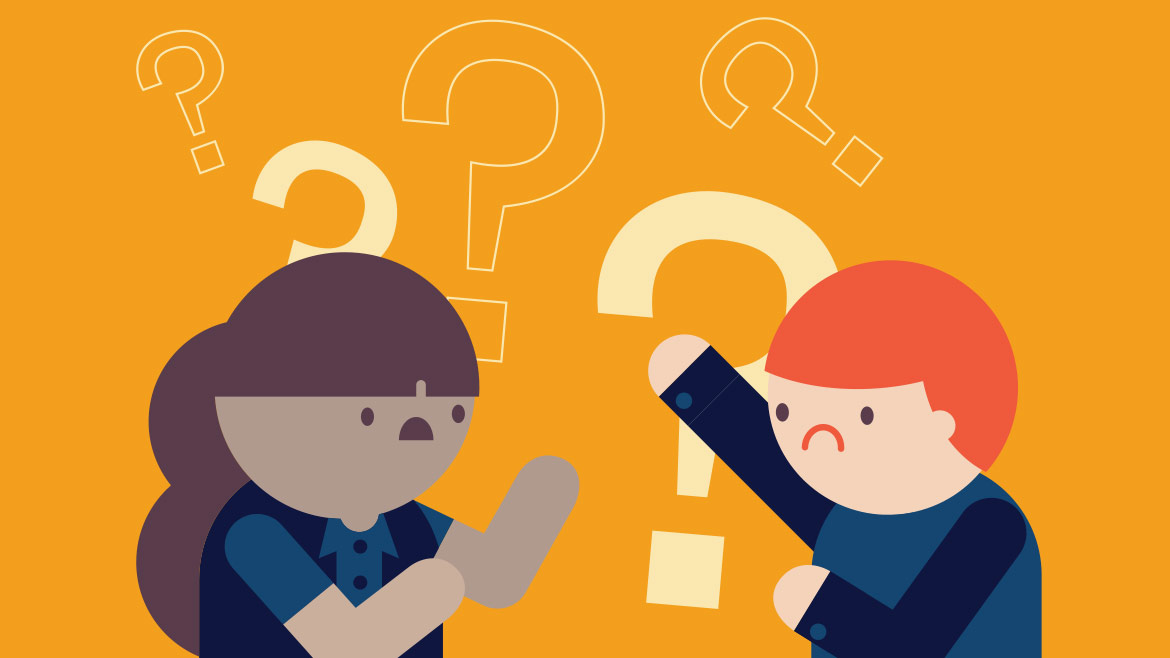Talking through Discomfort

It’s no secret that we would rather avoid conversations, situations, people, places, and things that make us feel uncomfortable. It’s easier to play the avoidance card than deal with discomfort. It’s human nature. However, when conversations of importance come into play – such as those that deal with basic respect for fellow colleagues, friends and family – we should pay close attention. These situations often require that we step outside of our comfort zones.
Our country and our respective communities have never had a shortage of topics that we’d rather avoid. This is especially true when the topic of discussion revolves around issues of social justice and equity, or the lack thereof. It’s unavoidable: someone that we know, care about, or even love is going to have an opinion different than our own. Either we find ways to continue enjoying one another by avoiding those hot topics or we figure out how to talk through them with one another. In a business setting, it’s crucial to be able to honestly communicate with your co-workers and preserve and improve your relationships.
So how do we do that? How do we talk through sensitive topics without feeling uncomfortable or risking irreparable damage to the relationship? These are valid concerns. In 2014, the City of Ferguson experienced an event that caused an immediate division across racial lines in the St. Louis area — the shooting of Michael Brown by Officer Darren Wilson. It was as if a line had been drawn right through the community. Yet few seemed to notice that there were serious, complicated topics about the event that needed to be faced. For many, either you were for or against your neighbor and their perspective, and nothing else mattered.
The DAP St. Louis branch was deeply affected by this division, and sought solutions to address it. DAP created an opportunity for community members to be in a room where they could be their authentic selves and learn the art of healthy dialogue. Participants saw and felt the concerns of their neighbors because they learned how to listen with their hearts versus debating who was right and who was wrong. They started healing, and the work continues today.
The division was not limited to the St. Louis community; it echoed across the country, and it certainly echoed here in Columbia. Many people felt the need to discuss the issues, and many others continued to avoid the topic of race and the many other ways we’re different from one another. If we are to move forward toward more diverse and inclusive communities, the change must start with us. Here are some ways to start talking about it with family, friends, and co-workers:
Identify the area of discomfort you want to overcome.
If race is the issue, then let race be the issue. Don’t try to call it something else that might be perceived as less controversial. We can’t heal the wound without addressing the cause. To move forward, we must be honest with ourselves and others about the lived experiences that have contributed to our biases.
Intentionally place yourself in situations that make you feel uncomfortable.
This sounds hard, and it is. But what better way to counteract fears and biases than to place yourself in situations that make you squirm? It’s a good tactic to push through challenging situations. You don’t have to do it alone. Find one person or a group of people willing to walk with you during your process.
Be okay with making mistakes.
They are part of the process. This is where finding a person or group of people willing to walk with you comes in very handy. These should be people who accept your mistakes and can help correct your path. In any relationship, this should be the norm. We need people who will not turn their backs on us as we move through a difficult process.
Create a support system for others.
Be an ally for others struggling with similar challenges. Have go-to people who can be the calm in the storm of change, because it will not be easy. It will be a challenge, and you will have days when you want to give up. Please don’t. Seek out resources, such as DAP, to help you find your new and diverse network.
Nikki McGruder is the regional director of Diversity Awareness Partnership – Columbia.


